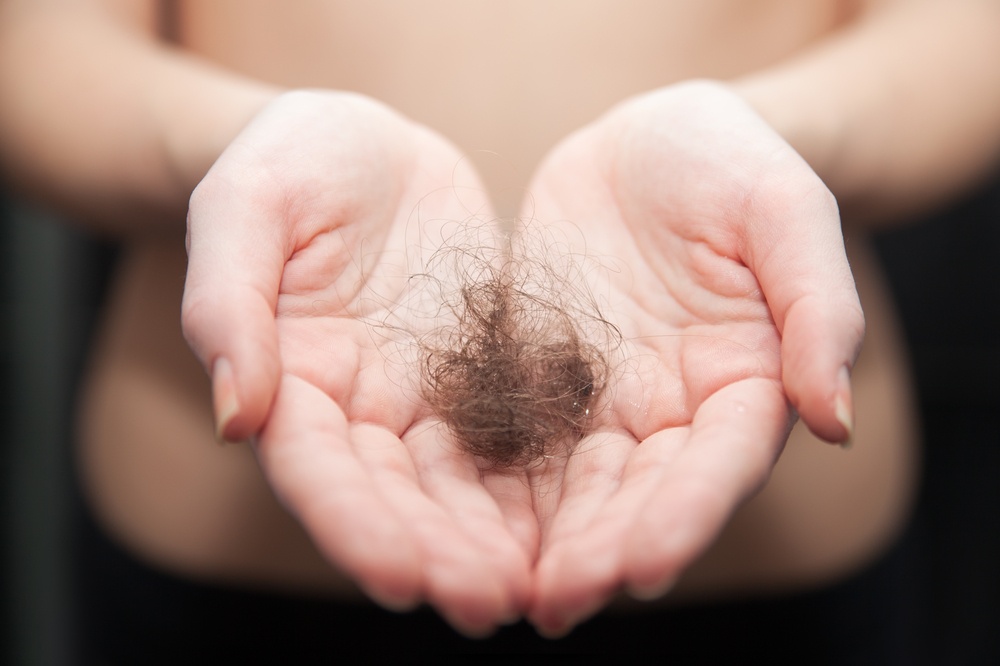Around 6.8 million Americans and 147 million around the world will develop or already have alopecia areata, according to the National Alopecia Areata Foundation (NAAF).
Alopecia mostly develops in adults between the ages of 30 and 60 years old. But, older adults can develop it as well as younger children — although rare. The condition isn’t contagious. Take note, it’s not the same thing as hair shedding, which sometimes occurs after discontinuing hormonal progesterone and estrogen therapies for birth control or of that with the end of pregnancy. Alopecia areata can also be confused with various other conditions.
Alopecia Definition
So, what is alopecia?
Alopecia is a condition that causes you to lose hair in small patches. Your immune system attacks your hair follicles, leading to your hair falling out. Rarely does alopecia cause total hair loss known as alopecia universalis, but it can keep your hair from growing back. And, when your hair does grow back, there’s still a risk of it falling out again. Each person varies in the extent of their hair loss and regrowth patterns.
A common pattern is where you have one or more well-defined patches of hair loss on your scalp. The prognosis is worse if your alopecia causes hair loss that involves the posterior and temporal scalp (ophiasis pattern) or if you have larger areas of your scalp involved for long time periods. Sometimes, all hair on the scalp is completely lost — alopecia totalis.
Some alopecia areata facts are:
- Of all individuals with alopecia, one in five also has a member of the family who’s had the disease.
- Little scientific evidence backs the claim stress causes alopecia areata.
- Alopecia often comes on suddenly, often over the course of several days.
- Individuals with alopecia only having a few hair loss patches often recovery spontaneously and completely without treatment.
- Alopecia has no cure.
Even though there isn’t a cure for the condition, there are treatments available that could help with quick hair regrowth and may even prevent future hair loss. You also have resources at your disposal to help you cope with the condition.
There are different forms of the disease:
- Androgenic alopecia: A hereditary form of alopecia with male or female pattern baldness.
- Anagen effluvium: Chemotherapy-induced hair loss. Once you stop the chemo, your hair typically grows back.
- Telogen effluvium: Trauma or shock to your body causes this form of sudden hair shedding. It may affect women after they give birth, but their hair grows back normally in most cases.
- Diffuse alopecia: Generalized type of hair loss with dramatic widespread thinning of the hair on your scalp.
- Alopecia universalis and Alopecia totalis: Alopecia universalis is complete body hair loss, including nose and eyelash hairs, due to an attack of the immune system. Alopecia totalis is where you lose your scalp hair completely.
- Scarring alopecia: This form of alopecia is rare. It’s where you have scar tissue that replaces your hair follicles making it so your hair can’t grow back. It’s unclear what the cause is.
Losing your hair can impact self-esteem negatively, sometimes resulting in depression and anxiety.
Symptoms of Hair Loss (Alopecia)
Depending on the cause, you can experience different alopecia symptoms and you can lose your hair is various ways. You may lose your hair gradually or suddenly and it can affect your entire body or just your scalp. Some forms of hair loss are permanent where others are only temporary.
Hair loss is the primary symptom of alopecia areata. Your hair will typically fall out of your scalp in small round patches — generally a few centimeters or less. You may also experience hair loss on other areas of your body. You might notice your first clumps of hair in the shower or on your pillow. But, hair loss isn’t the only symptom doctors use to diagnose alopecia since other diseases can also contribute to hair falling out in a similar pattern.
Some individuals will suffer with more extensive hair loss, in rare cases. Hair loss linked with the condition is random and unpredictable. You may grow your hair back at any time just to have it fall back out again.
Hair loss symptoms and signs might include:
Gradual Hair Thinning on Top of Your Head
This type of hair loss is most common and affects both women and men as they age. Women usually keep their forehead hairline, but the part in their hair broadens. Men usually experience receding hair from their forehead in a letter M shaped line.
Patchy or Circular Bald Spots
Some individuals experience coin-sized, smooth bald spots. Their hair loss tends to affect their scalp only, however, it may also occur in eyebrows or beards. In some instances, before your hair falls out, your skin might become painful or itchy.
Sudden Hair Loosening
An emotional or physical shock may loosen hair. When you wash or comb your hair you may end up with handfuls of hair. This may occur even with just a gentle tug of your hair. Hair loss of this type doesn’t usually lead to bald patches but rather causes overall thinning of the hair.
Full Body Hair Loss
Some medical treatments and conditions like cancer with chemotherapy treatment can lead to hair loss all over the body. You’ll grow the hair back in most cases.
Scaling Patches Spreading Over the Scalp
When this occurs, it indicates ringworm and is often accompanied by:
- Redness
- Oozing
- Broken hair
- Swelling
If you’re struggling with hair loss and are seeking treatment, see your doctor. You’ll also want to consult with your doctor if you start noticing patchy or sudden hair loss or if you lose more hair than usual when you wash or comb it. Losing your hair suddenly can indicate an underlying health condition where you’ll need treatment.
Causes of Hair Loss (Alopecia)
Alopecia occurs when your white blood cells begin attacking your hair follicle cells and cause them to shrink, slowing down your hair production dramatically. Why your immune system targets your hair follicles in this manner isn’t known precisely.
Although scientists are unclear the reasons behind these changes, they do believe genetics have something to do with alopecia and individuals who have close members of the family with the disease are at a higher risk.
Research has also shown individuals with a family history of the condition also have a family or personal history of another autoimmune disorder like:
- Vitiligo
- Thyroiditis
- Atopy
As mentioned above, there’s little evidence that stress is one of the alopecia causes, although extreme stress might possibly trigger the condition.
Alopecia can challenge you emotionally, particularly when your hair loss is affecting your entire scalp. Individuals with alopecia may become depressed or feel isolated. There are support groups and counselors available if you’re feeling overwhelmed and require help coping with the disease’s effects.
Support groups offer you a safe environment where you can express any anxiety or stress you’re feeling and share your experience. The NAAF offers support groups all over the U.S. They also have online message boards and conferences to help you connect with other people struggling with the disease.
If your hair loss is bothering you, you can try wearing a hat, wig or stylish scarf to cover up bald patches. Try applying hair-colored cream or powder to your scalp to hide your hair loss as much as possible. Pencil in eyebrows with an eyebrow pencil.
Schedule an Alopecia Hair Loss Consultation Today.
Learn more about alopecia and the options of treatment you have available to you, including NeoGraft® Automated Hair Transplant System performed by Dr. Bradford S. Patt, MD FASC at the Houston Center for Facial Plastic Surgery.
Dr. Patt is a board-certified facial plastic reconstruction surgeon by the American Board of Facial Plastic Surgeons, and recognized in“ Super Doctors®” “Top Docs®” and of Houston for 11 years in a row. He is also board-certified in otolaryngology and, head and neck surgery. He is supported by an experienced, compassionate staff of professionals.
Schedule an alopecia hair loss consultation today with Dr. Bradford S. Patt, MD FASC by calling by calling (281) 393-4319 or completing our online scheduling form.



Leave a Reply